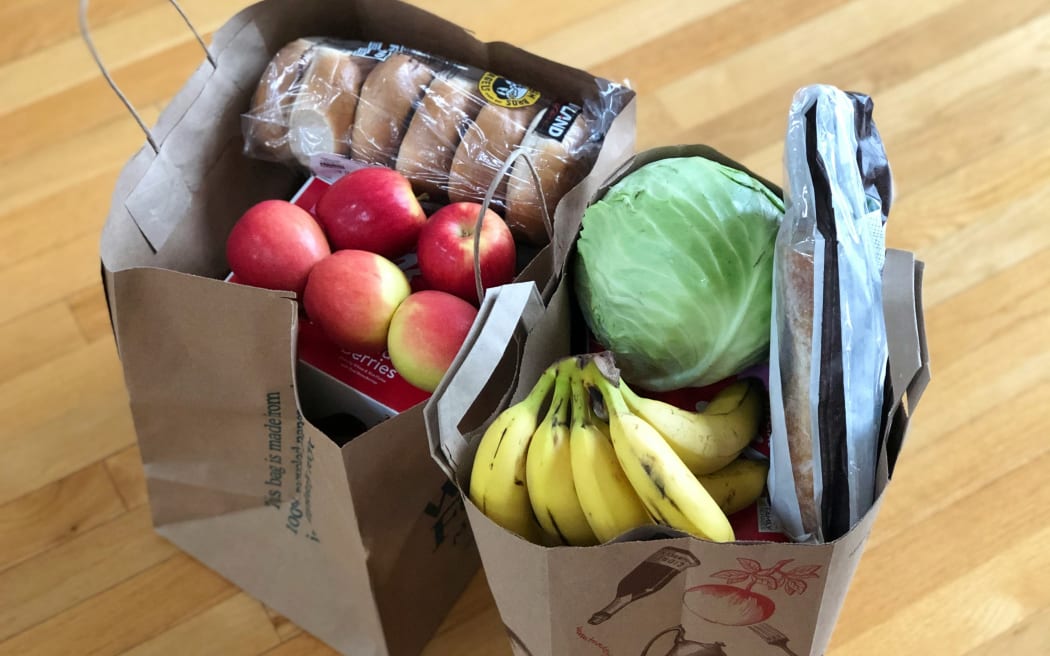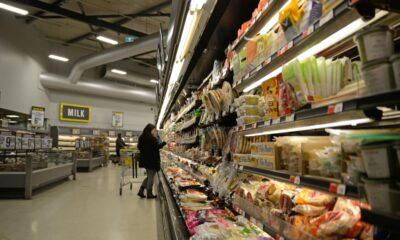Business
Food Prices Surge: Milk and Bread Costs Hit Record Highs

Food prices have seen a significant increase in recent years, with consumers particularly affected when purchasing basic items like milk and bread. According to data from Stats NZ, the combined cost of a loaf of sliced white bread and a two-litre bottle of standard milk rose from $4.35 in June 2006 to $6.58 in July 2023. The most notable increases occurred over the past year, with prices climbing sharply.
In July 2015, the average cost for these items was $4.45, although the measurement at that time was based on a smaller loaf of bread. Last year, shoppers could buy two litres of milk for $4.05 and bread for $1.40, resulting in a total of $5.45. By July 2023, the average prices had risen to $4.70 for milk and $1.88 for bread, reflecting a roughly 20 percent year-on-year increase.
Impact on Household Budgets
The inflation of basic food items has not gone unnoticed by consumers. Shamubeel Eaqub, chief economist at Simplicity, noted that grocery costs have “skyrocketed.” He pointed out that what used to cost $5 for both items now approaches $6.60. Eaqub emphasized the challenge of rising food prices, stating, “You can swap out fresh food for prepared food or frozen vegetables… but you still have to spend. Sliced bread is one of those staples; when money is tight, it is something people rely on.”
Other essential food items are also experiencing price increases. Recent reports from Stats NZ indicate that overall food prices rose by 5 percent in the year leading up to July 2023. Notably, milk prices increased by 16 percent, butter by 42.2 percent, and cheese by 29.5 percent. Over the past decade, the cost of a kilogram of minced meat has surged from $13.35 to $21.97, while the price of potatoes rose from $1.70 per kilogram to $2.36. Rice has also seen a significant hike, going from $2.48 to $3.32 per kilogram.
Challenges of Inflation and Income Stagnation
The ongoing pressure of food prices is straining household budgets. David Verry, a financial mentor at North Harbour Budgeting Services, remarked that the increases in food costs have not eased and are outpacing the growth in household incomes. Eaqub warns that these inflationary pressures are not likely to diminish soon, as global commodity prices remain high. He stated, “Most of the prices in supermarkets tend to take six to nine months to flow through, so a lot of that is still to come.”
This rising cost of necessities is impacting disposable income, affecting consumers’ ability to spend on other goods. Mike Jones, chief economist at BNZ, concurred, noting that the higher prices are diminishing purchasing power for households. He highlighted that the labor market remains relatively soft, with wage growth not keeping pace with inflation. While some relief may come from decreasing interest rates and slowing rent and fuel inflation, the overall economic outlook remains cautious regarding household spending recovery for the year.
As families continue to navigate these rising costs, the impact on everyday items such as milk and bread illustrates the broader challenges they face in managing their budgets amidst escalating prices.
-

 World1 week ago
World1 week agoPrivate Funeral Held for Dean Field and His Three Children
-

 Top Stories2 weeks ago
Top Stories2 weeks agoFuneral Planned for Field Siblings After Tragic House Fire
-

 Sports3 months ago
Sports3 months agoNetball New Zealand Stands Down Dame Noeline Taurua for Series
-

 Entertainment3 months ago
Entertainment3 months agoTributes Pour In for Lachlan Rofe, Reality Star, Dead at 47
-

 Entertainment2 months ago
Entertainment2 months agoNew ‘Maverick’ Chaser Joins Beat the Chasers Season Finale
-

 Sports3 months ago
Sports3 months agoSilver Ferns Legend Laura Langman Criticizes Team’s Attitude
-

 Sports1 month ago
Sports1 month agoEli Katoa Rushed to Hospital After Sideline Incident During Match
-

 World2 weeks ago
World2 weeks agoInvestigation Underway in Tragic Sanson House Fire Involving Family
-

 Politics2 months ago
Politics2 months agoNetball NZ Calls for Respect Amid Dame Taurua’s Standoff
-

 Top Stories2 weeks ago
Top Stories2 weeks agoShock and Grief Follow Tragic Family Deaths in New Zealand
-

 Entertainment3 months ago
Entertainment3 months agoKhloe Kardashian Embraces Innovative Stem Cell Therapy in Mexico
-

 World4 months ago
World4 months agoPolice Arrest Multiple Individuals During Funeral for Zain Taikato-Fox





















